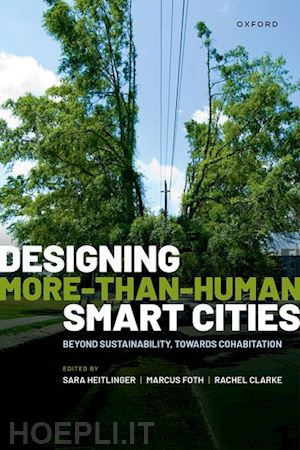Climate change, rapid urbanisation, pandemics, as well as innovations in technologies such as blockchain, AI and IoT are all impacting urban space. One response to such changes has been to make cities ecologically sustainable and 'smart'. The 'eco smart city' for instance uses networked sensing, cloud and mobile computing to optimise, control, and regulate urban processes and resources. From real-time bus information to autonomous electric vehicles, smart parking, and smart street lighting, such initiatives are often presented as a social and environmental good. Critics, however, increasingly argue that technologically driven, and efficiency-led approaches are too simplistic to deal with the complexities of urban life. Sustainability in the smart city is predominantly performed in limited ways that leave little room for participation and citizen agency despite government efforts to integrate innovative technologies in more equitable ways. More importantly, there is a growing awareness that a human-centred notion of cities, in which urban space is designed for, and inhabited by, humans only, is no longer tenable. Within the age of the Anthropocene - a term used to refer to a new geological era in which human activity is transforming Earth systems, accelerating climate change and causing mass extinctions - scholars and practitioners are working generatively by acknowledging the entanglements between human and non-human others (including plants, animals, insects, as well as soil, water, and sensors and their data) in urban life. In Designing More-than-Human Smart Cities, renowned researchers and practitioners from urban planning, architecture, environmental humanities, geography, design, arts, and computing critically explore smart cities beyond a human-centred approach. They respond to the complex interrelations between human and non-human others in urban space. Through theory, policy and practice (past and present), and thinking speculatively about how smart cities may evolve in the future, the book makes a timely contribution to lively, contemporary scientific and political debates on genuinely sustainable smart cities.











